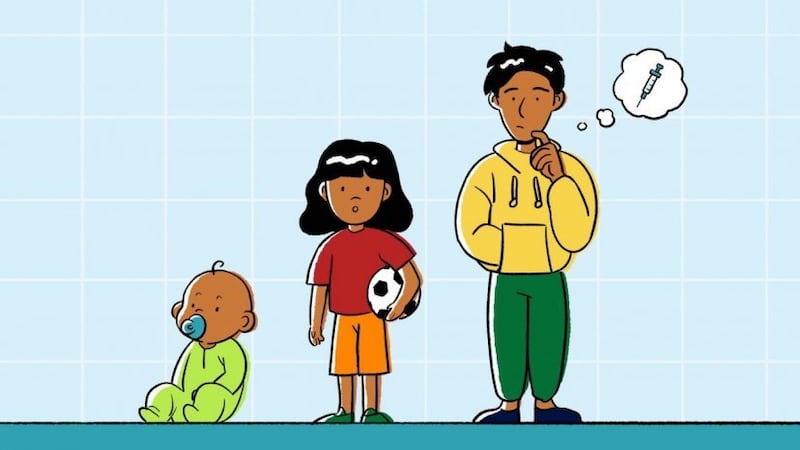Everyone in New Zealand is entitled to the highest attainable standard of health as a human right. This includes access to vaccination.
People as young as 12 are eligible for the Pfizer vaccine both here and overseas, with trials underway to ensure its safety for even younger children.
In the United States, there have been instances of children opting to be vaccinated against their parents' wishes.
Children under the age of 16 may give or withhold consent to healthcare treatment as long as they can show they fully understand and are deemed competent by a healthcare professional.
As with other vaccination programmes, those aged between 12 and 15 who go to their usual healthcare provider or vaccination centre, can provide informed consent and be given the vaccine. Even if their family members aren't vaccinated, children and young people can read information from trusted sources and make their own decisions.
A parent or caregiver is able to give informed consent on behalf of the young person where a medical professional is of the view that there are reasonable grounds for believing the child is not competent and cannot give informed consent.
The majority of caregivers do plan to get their eligible young person vaccinated. A Ministry of Health survey in June found 83 per cent of caregivers were likely to allow their 16- to 17-year-olds to be vaccinated, but this dropped to 58 per cent for 12- to 15-year-olds.
Compared to adults, young people and children make up a lower proportion of Covid-19 infections and tend to experience less severe illness. But they’re not immune to the virus, and some can get sick and have complications or long-lasting symptoms.
Even against the doubly-infectious Delta variant, the Pfizer vaccine has been found to prevent severe disease in more than nine out of 10 vaccinated people.
Vaccinated people are also less likely to transmit the virus to others. Auckland's Marist College has seen first-hand how schools can be hit hard by Covid-19 — there were 96 cases linked to the school during last year's outbreak.
As well as protecting others now, vaccination helps protect communities in the future — because the more the virus circulates, the more likely it is that new variants will sidestep the current vaccines.
Fortunately, instances of children going against their parents’ wishes for a vaccine are not likely to be common.
Generally, parents want to be involved with their children’s health decisions up to at least the age of 16. (At 16, the Care of Children Act says children can give consent to medical treatment as if they were an adult.)
Parents with concerns about whether their children should be vaccinated should talk to a trusted clinician, such as their family doctor.
To encourage families to get vaccinated together, the Ministry of Health's Covid Vaccination Healthline allows people to make group bookings, and the Book My Vaccine website allows you to make a booking for someone else (with consent).
Reporting disclosure: Dr Emma Best, a paediatrician and specialist in infectious diseases at the Immunisation Advisory Centre, Professor Claire Breen, a lawyer specialising in children and human rights at the University of Waikato, and Astrid Koornneef, group manager operations for the Covid-19 vaccination programme at the Ministry of Health, provided expert advice for this post.


